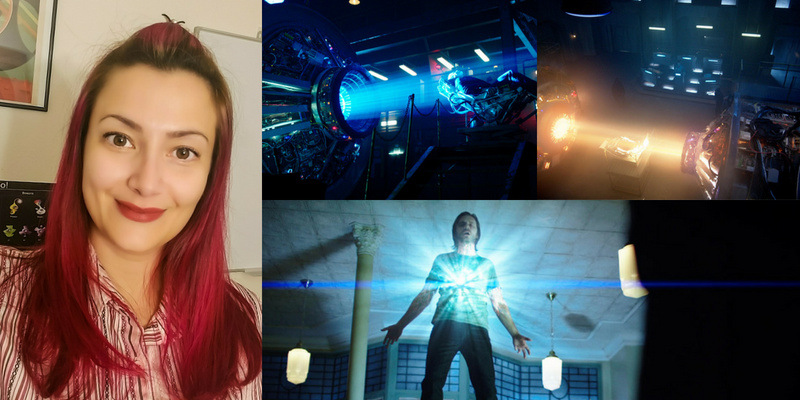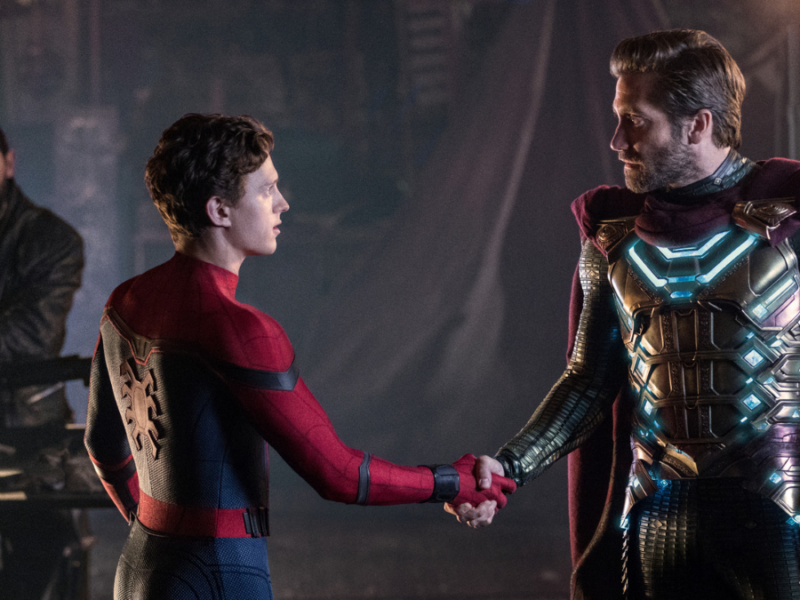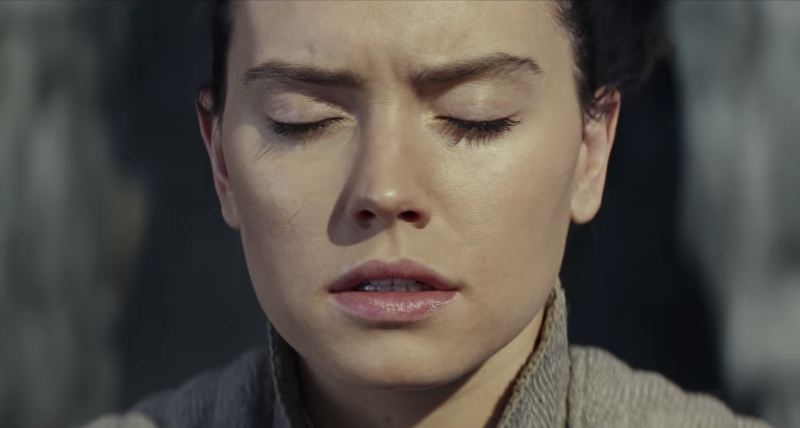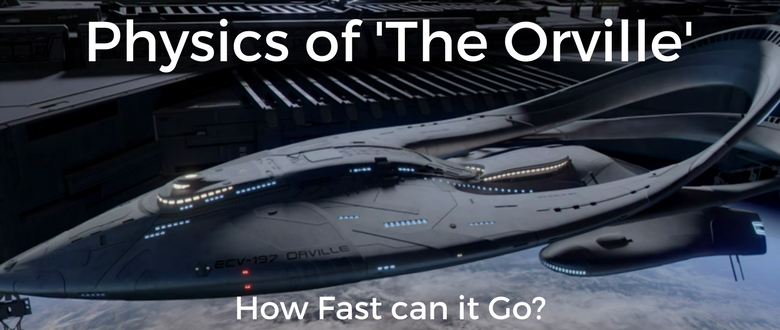As the hit time-travel TV show 12 Monkeys enters its fourth and final season, we talked to the show's season four science advisor, Sophia Nasr. Sophia is an astroparticle physicist working on dark matter. We talked to her about the work she does at UC Irvine, why dark matter (not the show) is so important, her work on 12 Monkeys, and how important science advisors on TV shows are as science communicators.
Can you tell me a little bit about what you do, and what you research is about?
Yeah, sure. At the moment, I am a graduate student working on my PhD at UC Irvine where I study astroparticle theory in cosmology. Well, what does that mean? It means I study the universe and the particle bits of it. The particle I am looking at right now is dark matter, and the type I look at is different from the more widely accepted paradigm or the weakly-interacting massive particle – the WIMP. The type I look at is self-interacting dark matter. It’s dark matter that actually does experience interactions with other dark matter particles and this seems to help solve a few problems that the other type of dark matter particle seems to show. Still a work in progress but that is what I do.
What exactly is dark matter and why is it so important?
That is a great question. So what is dark matter? The answer to that is, we don’t know. We don’t know what it is yet, but one of the ways we know it is there is by its interactions with gravity. We think we understand gravity very well. The way it works in our solar system is, as you move further out, planets start to move a bit slower. What happens is, the gravitational force decreases as the square of the distance, so it gets weaker as you move further away from the sun. You expect there to be the same behavior when you look at galaxies because stars also orbit the core. But when you look at galaxies, you see stars are moving a little too fast further out at the galaxy’s edge and the stars we see, can’t account for all that gravity. So there has to be something we can’t see doing it.
So what is dark matter? The answer to that is, we don’t know. We don’t know what it is yet, but one of the ways we know it is there is by its interactions with gravity.
The other way we know dark matter exists is gravitational lensing. Einstein said matter bends space-time and gravitational lensing is proof of Einstein’s Theory of General Relativity. Mass bends space-time and, as a result, bends light or the path that a photon travels. So if you have a mass in front of a galaxy, you either see several images of the galaxy around this mass, or it might appear warped in the case of weak lensing. This happens because that mass is bending space-time.
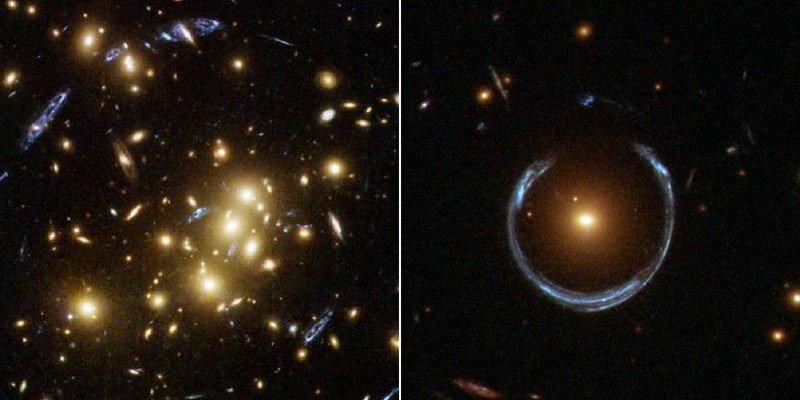
So the trajectories of the photons coming from that galaxy get bent, which is why you see these warped images around the mass. The amount of warping that happens, tells us how much matter there is, and the light in there—the stuff we can see there, the stars and whatnot—even gas cannot account for how much there is. So we know there's dark matter there, but we don't know what it is yet. So, why is it important? It makes up 25% of the universe’s content, and we make up about 5%. The stuff we understand, like your table, computer, you, the stars, these things are only 5% of the universe. Dark Matter is 25% so it is really important to figure out what this is. It is a huge chunk of the universe we live in.
With the TV show, 12 Monkeys, were you always a fan of the show?
So what happened, my friend Phil Plait (Bad Astronomer) started tweeting about 12 Monkeys and he got me interested in it. I said, this sounds really cool because, you know, he was watching it and it had some good reviews. So I started to watch it too, and I was blown away. I started to tweet about it and that’s where my love for 12 Monkeys came from.
How did you become involved with the show?
That comes from social media. When I started to tweet about it, Terry Matalas, a creator and writer of the show saw what I said and, I guess, he looked into my profile, saw what I do, and he reached out to me. He asked me if I could work on the show and help make the science make sense.
How cool was that?
Pretty amazing! (laughs) It was amazing, so I jumped at the opportunity. It was really great.
In one of your Instagram posts about the show, you mention something called the Hartle-Hawking state. What is that?
The Hartle-Hawking state is a wave function that describes the universe from its very beginning. In quantum mechanics, wave functions describe the probability of a particle being at some place at some point in time. The Hartle-Hawking state takes the universe way back before the Planck Epoch (which is 10-44 seconds after the Big Bang), when the universe was smaller and things were super hot and dense. The cool thing that results from the Hartle-Hawking state is that it takes time out of the equation at the very beginning, so that there's only space, and no time! I think that was a really, important part of why Terry wanted this to be a part of the show. I can’t explain why, you will have to wait until season 4 to see why but basically that is at the heart of what the Hartle-Hawking state was. In general terms, the caveat is that the Hartle-Hawking state depends on a closed universe and we are pretty sure we live in an open universe—our universe is flat, so this makes it open. This state works for a closed universe. Then again, you are doing sci-fi, so hey, maybe it is a closed universe. So, that is kind of the caveat.
I was going to about ask that. During the show’s beginning, we learn that the Army of the 12 Monkeys are trying to eliminate time, and this sounds a little like what they are trying to achieve – a state in which the universe exists without time. What exactly does having no time mean?
That is almost a philosophical question. Time, in general, it is a very difficult question and I don’t think I have the answer to that question, “if you had no time?” with the universe we understand. It is with time that things move. It is with time that entropy or disorder increases. It is with time that evolution happens, of galaxies, and of life. So what does it mean to have no time? I don’t know.
What are some of the things you had to do as a science advisor?
Well, I had to read the paper and look up what this stuff means because it was my first time ever looking at this. At that time, it was a bit beyond what I had learned. It was advanced material, which was really exciting. So I got to do this and I had enough background to understand enough of it, to be like, “I know how to do this, and this makes sense.” Basically, it was a research project where I needed to take this stuff apart but, at the same time, add some of my own flavor to it. I like the multiverse idea and threw in some of that in certain ways. It basically takes you through cosmology and quantum mechanics, then flows to the Hartle-Hawking state, which uses the physics of the very big and the very small.
I also got to go on set and watch as they filmed a bit and meet some of the actors, which was really cool. The experience in itself was almost a research project, which was really exciting. It gave me a chance to look into things that I had anticipated exploring later in my career right now. So it was really good.
Did you work on any props? For example, blackboard equations?
I didn’t actually. They have artists who put these things together, so what I did was send them my work and they put them together on a board. I didn’t get to work on props on my own, so it’s not going to be my writing up there but it will be work I did.
The TV show incorporates a lot of science and scientific ideas into the plot. How do you feel that was handled in previous seasons?
I think it was definitely sci-fi but I liked that they had these paradoxes involved. It was really cool how they threw science into it. Although it's possible in theory to travel forward in time, traveling back in time is a different story: it introduces something we call the "grandfather paradox", where someone who travels back in time accidentally kills their grandfather, and as such, can't be born. But the show made it work by bending the rules and throwing in science in a way I thought was really cool. I think what the show wanted to achieve in season 4 was tough, and the Hartle-Hawking state was a brilliant way of doing it.
That last question actually came from a fan in one of the 12 Monkeys Facebook groups. I have another question from a fan who wants to know more about your experiences working in male-dominated fields, both as a physicist and a television consultant.
Those are two very different questions. Let's start with the one in my field. I work in a male-dominated field because of the stereotypes that have driven women away, or even prevented, women from getting into the field in the past. The good thing is that I've not felt any discrimination within my field. The worst of it actually comes from people outside the field, in the form of comments like “wow, you’re a physicist? I would never expect a girl to be a physicist.” That kind of thing, this weird conception of what a physicist is. Although my experience among people in my field has not been problematic, many women do face discrimination, so there's still lots of work that needs to be done to make it a safe and welcoming environment for us.
I would like to see changes in the ratio of women-to-men in faculty. It's an important part of the experience. Most of my classes have been taught by male professors. So there's this lack of having a role model that's a woman, and I think that needs to change. Another thing I would like see change is diversity. I want to see more people of color among faculty. These are some of the things I would like to see change.
Now as for my experience as a woman in the TV industry, I felt like I was just the person who was a scientist, and they were like “wow.” That was totally cool.
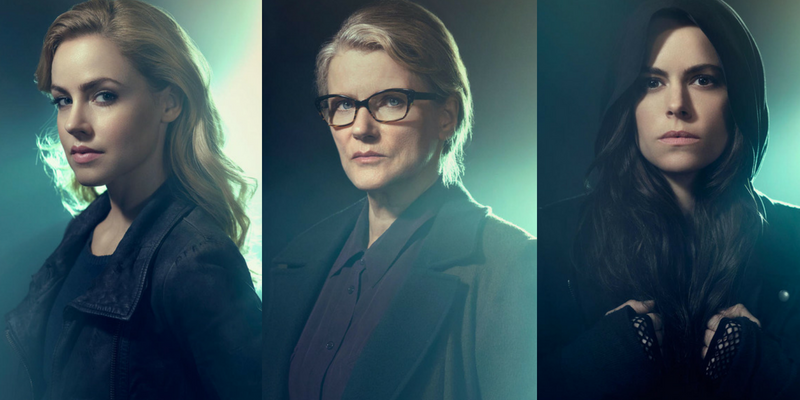
Some of the main characters in the show are scientists and women – they have STEM backgrounds. The Gena Davis Institute recently published a report on the Scully Effect. Do you think shows like 12 Monkeys are going to be important in encouraging women to get involved in STEM?
Yes, the fact that you brought that up was really great because when you watch TV shows you look for that. So when you see a woman being a scientist, it matters. Because it is representation, it matters a lot and I do think that is going to have a good effect because TV is a huge part of our lives.
Stacy Smith said something similar in her TedTalk, “The Data behind Hollywood’s sexism,” where she talks about the importance of representation in film and why it is important. She talks about the idea behind an inclusion rider and why it’s important that we have this diversity in story-telling. People identify with these characters when they can see themselves in them. That is why it is important to include other people in these stories.
Final question: do you think being a science advisor on a TV show or on film is important for science communication?
Yes, I do. Science fiction is awesome – we love it. But we want it to be based on science. It’s also really cool that writers care about the science. That tells me something about the changes that are happening. It tells me that the TV industry cares about science and that is a big deal. That tells me we are moving in the right direction where people are starting to see science is important. There are two fronts. One front where you have some science involved in these really cool sci-fi ideas, and also we have people who are working on them that actually care about it. It is nice because it brings the science and the film industry together, which is really great. Particularly for someone like me because I like the TV industry.
Is there anything else you would like to say or add?
Yes, keep your eyes out for season four. It’s going to be really good.
Follow Sophia on Twitter @Astropartigirl and watch out for 12 Monkeys on June 15, 2018.

